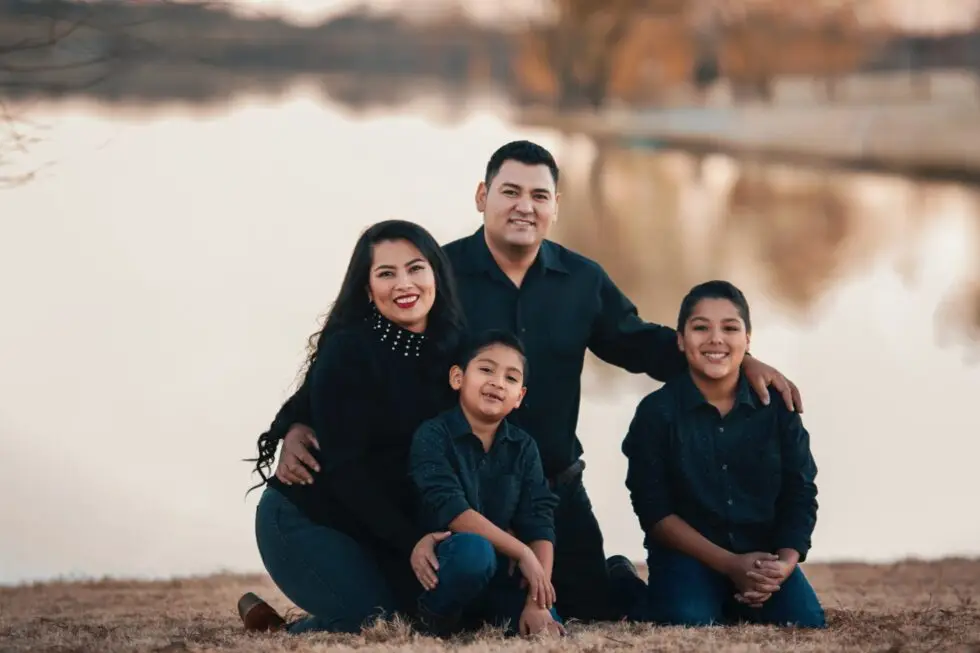What is Section 25 (2) sentence 1 Alt 1 AufenthG?
A Residence permit in accordance with Section 25 (2) Alt 1 AufenthG has certain characteristics and backgrounds. In order for you to understand how this right of residence works, it is important that you understand the meaning of Residence permit refugee status. The generic term, to which this Residence permit also belongs, is also essential for you to understand.
Why do you get the Residence permit refugee status?
The background for the Residence permit § 25 Para. 2 Alt 1 Residence Act can be found in § 3 of the Asylum Act. This states the reasons under which a foreigner may be designated as a refugee in accordance with the principles of the agreement reached on July 28, 1951:
The first reason is a well-founded fear of persecution on the grounds of race, religion, nationality, political opinion or membership of a particular social group.
The second reason is because he is outside his country of origin, of which he is a national and whose protection he cannot claim or does not wish to claim because of the fear mentioned in the first reason.
Furthermore, the refugee may also be a stateless person who previously had an ordinary Residence permit in the country from which he or she fled and is unable or unwilling to return to that country.
Who receives the Residence permit refugee status?
A person is granted Residence permit refugee status in accordance with Section 25 (2) Alt 1 AufenthG if they meet the requirements of Section 3 of the Asylum Act and the authorities have verified that they meet the criteria for refugee status.
This includes the risk of persecution for various reasons in the home country. This can include a war and also a certain political conviction for which he has to fear for his life in his home country.
The reasons for refugee status are strictly examined and it is important to provide evidence, proof and circumstantial evidence as to why one must be recognized as a refugee.
What kind of Residence permit is Section 25 (2) Alt 1 AufenthG?
The Residence permit refugee status according to § 25 para. 2 Alt. 1 AufenthG is a status under asylum law Residence permit.
There are different designations for this Residence permit in Germany. Accordingly, you must look for these designations on the residence permit card. In addition to the designation above, there is the designation: § 25 para. 2 sentence 1 alternative 1 AufenthG, § 25 para. 2 (3) AufenthG - here the (3) stands for 3 AsylG (Asylum Act) refugee status
There is another designation: Section 25 (2). In this case, the designation is imprecise, as there is also an alternative 2 of paragraph 2, which is called Subsidiary Protection. It is then necessary to check exactly which part of Section 25 (2) is involved.
Naturalization with § 25 para.2 Alt.1 AufenthG
How do you obtain § 25 para 2 sentence 1 Alt 1 AufenthG ?
There is a clear procedure for granting a residence permit for refugee status in accordance with Section 25 (2) AufenthG. It is always the same procedure, but there are some differences depending on the decisions of the authorities. This includes the positive and negative course of the review of the residence permit.
Asylum application before § 25 para. 2 sentence 1 Alt 1 AufenthG
The first step is to apply for asylum at the BAMF (Federal Office for Migration and Refugees) before you receive the Residence permit . The application for asylum is then submitted to the BAMF. During this asylum procedure, the person concerned is accommodated in a specific type of accommodation.
Examination by the authorities as to whether refugee status applies
Once the application for asylum has been received by the BAMF, it will be examined by the authorities. First of all, the Federal Ministry checks whether Germany as a state is responsible for your case at all. Your case will then be examined to see whether the grounds for fleeing, which can be found in § 3 AsylG, apply to you.
This requires as many cogent arguments and evidence as possible as to why your case is an example of refugee status under § 3 AsylG. The more evidence and clear proof there is of your refugee status, the more likely it is that you will actually be granted refugee status in the end.
Granting of refugee status
In the last and final step, the BAMF makes a decision and issues you with a positive or negative asylum decision. If the asylum decision is positive, you now have the Residence permit § 25 Para. 2 Alt 1 AufenthG and receive the note: Refugee status is recognized. The Residence permit is issued for a period of 3 years and can be extended for 3 years.
In the event of a negative asylum decision, a complaint can be lodged with the competent administrative court. As a rule, the deadlines in this case are one or two weeks after receipt of the decision. It is very important that you observe these deadlines.
If there is another negative decision, you have the option of going to the next higher instance and appealing to the Higher Administrative Court in the second instance, provided the deadlines are met.
If there is another negative decision here, you have the option of going to the third and final instance if you observe the deadlines: The Federal Administrative Court.
If you fail with your appeal in the third instance, it will be impossible to obtain refugee status and you will not be recognized as a refugee. This means that you will have to leave the country and return to your home country.

Requirements for refugee status
There are clear conditions for refugee status and these are particularly important if you have received the Residence permit . Many holders of refugee status make mistakes and believe that this title can never expire. This is not the case and that is why the time after receiving the residence title § 25 Para. 2 Alt. 1 AufenthG is particularly important.
Required documents and requirements for refugee status
In general, you do not need any documents as an arriving refugee. However, if you have evidence such as a valid national passport or other valid proof of your identity, an identity card or proof of threat in the form of cell phone videos, letters or other evidence, then this is helpful.
It is crucial that you can clearly demonstrate through your evidence (written or oral) that you have the characteristics of a refugee. The clearer it is for the authorities to deduce your history and biography, the easier it will be for you to obtain Residence permit refugee status.
The requirements for refugee status can be divided into 5 areas:
- You must have applied for asylum: Without the application for asylum, the granting of the title generally does not work. This is the beginning of all the requirements.
- You must not have a valid Residence permit in another safe country. If you are fingerprinted in another safe country, your application may be refused.
- If Germany is not responsible, the application will be rejected. You can appeal against this. If the safe country does not accept you within 6 months, Germany will be responsible for you in accordance with Dublin II.
- You must prove that you have a reason for fleeing in accordance with § 3 AsylG. This proof is provided orally. The decisive factor is that you credibly demonstrate the characteristics in § 3 AsylG.
- You must explain your biography as accurately and precisely as possible.
Hearing for the granting of refugee status
The interview at the BAMF will take place orally. According to § 3 of the Asylum Act, you must explain one of the following reasons for your flight:
Characteristics of race
Characteristics of religion
Characteristics of nationality
Characteristics of political conviction
Characteristics of membership of a particular political group
In general, you will be asked many questions at the BAMF interview. It is important to answer them precisely and truthfully.
You will be asked questions about your place of residence, places of interest and directly about your reasons for fleeing. These must be described truthfully and in detail. Contradictions will be noted, as the authorities have many years of experience in conducting such interviews.
Errors in the refugee status procedure
There are mistakes that can be made at the hearing. There is no point in telling untruths. You must focus on the characteristics in § 3 AsylG. Economic reasons are not grounds for granting you refugee status. On the contrary - in such a case you will receive a negative decision.
Loss of refugee status
There are scenarios in which you can lose your refugee status. If you commit a criminal offense and this endangers the general public or the Federal Republic of Germany, this is considered a reason for you to lose your refugee status.
If it turns out that you have committed a war crime in your country of origin, this is also a reason for you to lose your refugee status.
In general, you will lose your refugee status if the criteria for refugee status no longer apply and the situation in your home country has changed. The same applies if you travel to your home country.
For this reason, it is important to make efforts to change this right of residence to a secure right of residence as soon as you have the Residence permit Section 25 (2) AufenthG Alt 1.
So as soon as you have the opportunity to apply for Settlement permit , you should do so and not wait until your refugee status changes.

The advantages with Section 25 (2) sentence 1 Alt 1
The Residence permit refugee status according to § 25 para. 2 Alt. 1 AufenthG has some positive aspects. These positive aspects concern different areas and have different effects on life in Germany.
Advantages at Naturalization due to refugee status
In contrast to some other residence titles, which are blocked for refugees under § 10 StAG. Naturalization This does not apply to refugee status.
It is therefore possible for you to become a German citizen with § 25 para. 2 Alt. 1 AufenthG to become a German citizen. The decisive factor is that you meet all the conditions for applying for German citizenship.
Another advantage is that the period of the asylum procedure before the residence permit is issued is included in the calculation for Naturalization .
So if you had to wait 3 years for the asylum decision due to circumstances and then lived in Germany for 5 years with Residence permit refugee status in accordance with § 25 Para. 2 Alt. 1 AufenthG, then you already have the necessary period of legal residence for the Naturalization.
Advantages at Settlement permit due to refugee status
According to Section 26 (3) AufenthG, the requirements for Settlement permit with Section 25 (2) Alt. 1 are simpler than with other residence titles. This applies to both language certificates (A2 language certificate is sufficient) and pension insurance contributions (proof not required).
There are also special features with regard to securing a livelihood with refugee status in accordance with Section 25 (2) AufenthG. The livelihood does not have to be fully secured, for 3 years it must be 51% and for 5 years 76%. The remainder can be topped up with Alg II.
With a C1 language certificate, the Settlement permit with the Residence permit § 25 Abs.2 Alt.1 is also possible after 3 years. As with Naturalization , the same applies here: The period of the asylum procedure is included in the calculation of the duration of residence.
Advantages of family reunification with refugee status
Family reunification is much easier with refugee status than with Residence permit Subsidiary protection under Section 25 (2) Alt.2 AufenthG or with other residence titles. Less proof is required and the requirements for you as an applicant are lower.
Disadvantages of refugee status
There are not only advantages, but also disadvantages with the right of residence of refugee status according to § 25 para 2 Alt 1 AufenthG. In particular, the issue of travel to the home country is affected by this problem.
Travel problems to the home country with refugee status
As good as the general opportunities to travel with Residence permit refugee status in accordance with Section 25 (2) AufenthG are, travel to the home country is not affected.
If you travel to your home country with this Residence permit , you are in breach of Section 73 (1) AsylG and the authorities will initiate an objection procedure against your stay and withdraw your residence permit.
Traveling to your home country is a violation of the conditions for which you were granted refugee status. It can be assumed that you are returning to your home country voluntarily. For this reason, it is not advisable to travel to your home country as long as you have this Residence permit .
Danger when the reason for fleeing no longer applies
If your reason for fleeing no longer applies for whatever reason, then you are at risk with the Residence permit § 25 para. 2 Alt. 1 in danger.
There is a risk that the reason for which you received the Residence permit no longer exists. This can also happen if, for example, the situation in your country of origin changes. The title is therefore very much adapted to the situation in your home country.

Working, traveling and family reunification with refugee status
When working, traveling and family reunification with refugee status in accordance with Section 25 (2) Alt 1 AufenthG, you must observe certain things. This concerns, among other things, the requirements for family reunification and the places you can travel to.
Gainful employment with refugee status
If you have refugee status in accordance with Section 25 (2) Alt 1 AufenthG at Residence permit , you can work without difficulty. It does not matter whether you are in a fixed-term or permanent employment relationship or whether you are self-employed. You also do not need permission from Foreigners' office as to whether you are allowed to work or not.
Traveling with refugee status
With refugee status, you will always receive a blue passport (German passport substitute) if you do not have a national passport from your home country. The guiding principle here is Art. 28 of the Geneva Convention.
The advantage here is that you can travel to all countries except your home country. Traveling with refugee status is therefore uncomplicated under these circumstances.
If you have a national passport from your home country, it is important that this passport is valid. With a valid national passport, nothing stands in the way of your trip. This does not apply to travel to your home country, including visits to the embassy.
Family reunification with Section 25 (2) Alt 1 AufenthG
Family reunification is much easier with Section 25 (2) Alt 1 AufenthG than with other residence permits. This is because the requirements are lower. In general, it is not a problem if you bring your nuclear family to Germany. The nuclear family includes: Your spouse, your underage children and your parents if you are still a minor yourself.
Your big advantage: With this Residence permit , you do not have to be able to support yourself and you do not have to provide proof of a declaration of commitment. Family reunification, for example, also works with this right of residence if you receive money from the Jobcenter.
It is important to observe the deadline for notification. Family reunification will only work if you have submitted the notification with your family's details within the deadline after receiving your residence permit and recognition of refugee status. The deadline is 3 weeks and you must have filed the notification in due time.
Application for Settlement permit with refugee status
There is a specific procedure for applying for refugee status at Settlement permit in accordance with Section 25 (2) Alt 1 AufenthG. It is important that you follow this process and keep it in mind.
The steps from refugee status to refugee status Settlement permit
You have an advantage with your Residence permit : the requirements are lower than for other residence permits. With regard to the duration of residence, Residence permit § 25 Para. 2 Alt. 1 AufenthG gives you the opportunity to obtain a C1 language certificate after just 3 years. Settlement permit to obtain a residence permit.
An A2 language certificate is sufficient for Settlement permit under Section 25 (2) Alt 1 AufenthG and you do not have to submit proof of pension insurance contributions. It is therefore all the more important in your case to submit the application early and in good time.
The steps are as follows: Organize and sort documents. Complete the application form in full and submit the documents to the authorities. Once the documents have been processed by the authorities, you will receive notification that your transfer from refugee status to Settlement permit has been successful.
Documents required for change from refugee status to Settlement permit
The documents you need to change your residence permit to Settlement permit are set out in § 9 AufenthG. Exceptions for your Residence permit apply to the requirements for the language certificate (A2 instead of B1 otherwise), pension contributions (no proof required) and, depending on whether you have a C1 language certificate, the duration of your stay.
Other documents you will need are valid travel documents (passport or passport substitute), a successful naturalization test, proof of employment with income, proof of housing and means of subsistence and the completed form for Settlement permit.

Application for Naturalization with refugee status
When applying for Naturalization with refugee status, there are various things you should consider in advance. Depending on your requirements and background, the Naturalization process will start at different times.
Steps from refugee status to refugee status Naturalization
The steps to Naturalization are the same in your case as they are for any other foreigner who has the opportunity to apply to Naturalization .
Step 1: Organize and sort the necessary documents.
Step 2: Complete the naturalization form in full
Step 3: Check naturalization application for completeness
Step 4: Submit naturalization application
Step 5: Submit Lawsuit for failure of act if necessary
Step 6: Appear at the appointment for the conferral of your Naturalization
If you have a German spouse, you can be naturalized after just 3 years if you meet all the other requirements. If you can demonstrate a special integration achievement (B2 certificate, voluntary work), then Naturalization can be naturalized after 6 years. If you have passed the naturalization test, the Naturalization can be obtained after 7 years.
Necessary documents from refugee status to refugee status Naturalization
The documents required for Naturalization are set out in the requirements for Naturalization under § 10 StAG. With regard to the language certificate, it makes sense for you if you already have a B1 certificate for Settlement permit .
The B1 certificate is also a requirement for Naturalization. In addition to all requirements for Settlement permit , you will need a signed declaration of loyalty and commitment to the free democratic basic order, proof of identity, proof of your Residence permit and your legal residence status of 8 years.
Summary
As you can see, the topic of Residence permit refugee status in accordance with Section 25 (2) Alt 1 AufenthG is very extensive. We have now summarized the most important points for you in detail:
- Section 25 (2) Alt. 1 AufenthG is linked to certain characteristics. You must fulfill these characteristics as a reason for flight.
- The background for determining refugee status is § 3 AsylG
- If you travel to your home country, the right of revocation under § 73 AsylG applies and your Residence permit will be withdrawn. This means that you cannot travel to your home country!
- Family reunification is possible for the nuclear family under lower conditions under Section 25 (2) Alt.1 AufenthG.
- If you have refugee status, you will always receive a blue passport with which you can travel anywhere except to your home country.
- Settlement permit is possible under simplified conditions (language certificate and pension insurance) in accordance with Section 25 (2) Alt.1 AufenthG.
- The Naturalization is easily possible with refugee status in accordance with § 25 Para. 2 Alt 1 AufenthG. The period of the asylum procedure is included in the length of stay.
Settlement permit with § 25 Abs.2 Alt. 1 AufenthG
FAQ - The most important questions and answers on Sec. 25 (2) Sentence 1 Alt.1 AufenthG
The Residence permit § 25 Para. 2 Alt. 1 AufenthG means that you have been granted refugee status according to the characteristics of the reason for flight in § 3 AsylG. The Residence permit is always linked to the individual reason for fleeing.
Yes, gainful employment is unproblematic with refugee status. You also do not need a work permit from Foreigners' office.
Yes, anywhere, except in your home country. According to § 28 of the Geneva Convention, you can travel anywhere with the blue passport that you receive with refugee status. Exception: your home country.
Yes. Naturalization is easily necessary with Section 25 (2) Alt 1 AufenthG. The period of the asylum procedure is included in the calculation of the duration of residence.
Yes. Settlement permit is possible with this Residence permit under simplified conditions (A2 language certificate and no proof of pension insurance).
The Residence permit § 25 Para. 2 Alt 1 AufenthG is generally issued for 3 years and can be extended for 2 years at a time.
You will receive the note: "Refugee status is recognized" if you receive Residence permit refugee status after applying for asylum. This note can be found on Residence permit .







